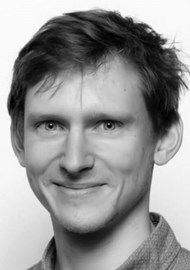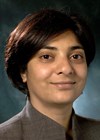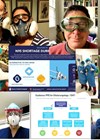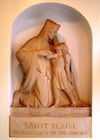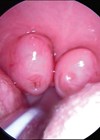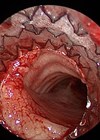ESPO, and paediatric ORL in general, has a long tradition of encouraging our younger colleagues. This has led to innovative developments in clinical work, in research endeavours and in how paediatric ORL educational events are run. This article outlines some of the activities Young ESPO is involved in.
The European Society of Pediatric Otolaryngology (ESPO) is one of the main paediatric societies worldwide and decided to create an ‘ESPO Juniors’ group (recently renamed ‘Young ESPO’) in 2018 at the ESPO meeting in Stockholm. From the start, the objective has been to build a community of young ENTs (under 35 years old) with a special interest in paediatrics. Over the past four years, Young ESPO has grown from a group focusing on fellowship and training opportunities to an active partner of the senior ESPO board, helping organise the ESPO congress and driving junior initiatives.
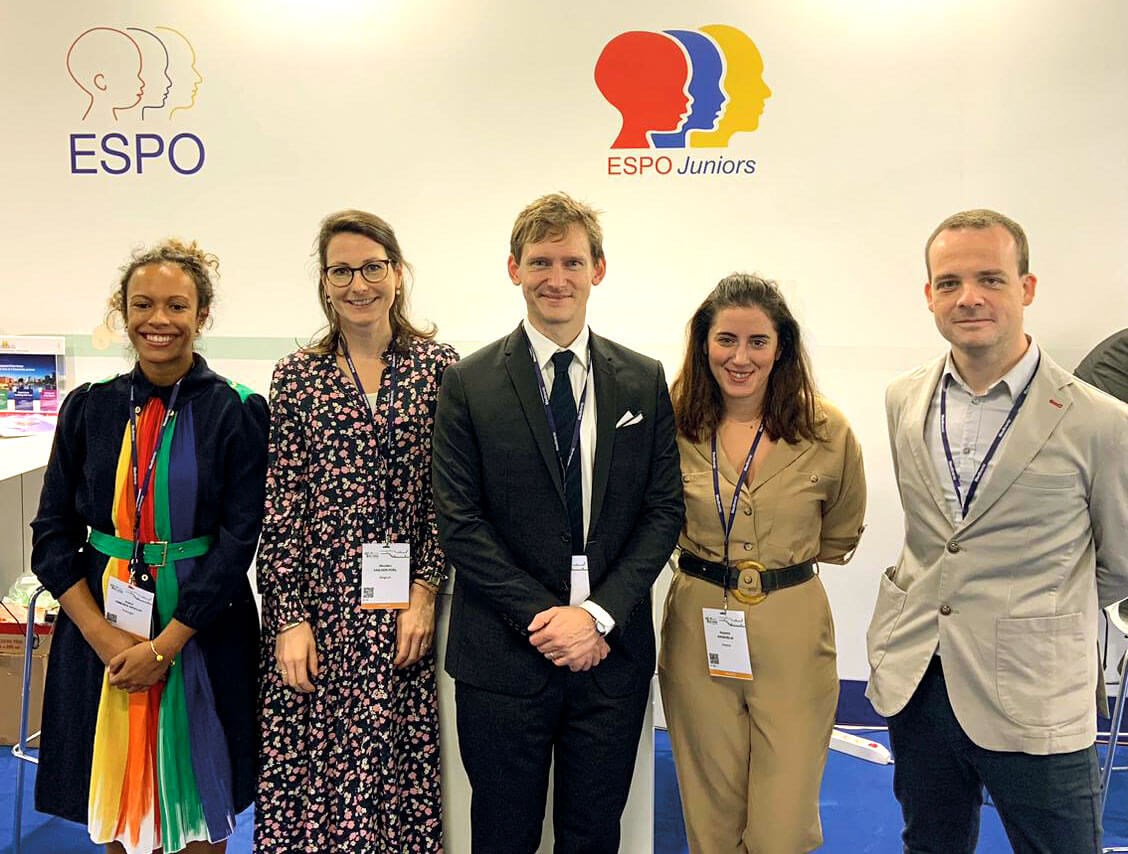
Young ESPO members at the CEORL-HNS 2022 congress in Milan, in front of the ESPO desk! (L-R): Joana Araujo (Portugal), Nicolien Van Der Poel (Belgium), François Simon (France, President), Aspasia Karavelia (Greece), Alberto Saibene (Italy). Other members of Young ESPO not pictured are Hannah Emerson (United Kingdom), Katarzyna Resler (Poland) and Hanneke Bruijnzeel (The Netherlands).
In the (sadly virtual) Marseille 2021 congress, the Young ESPO group organised the morning junior sessions, with a special focus on interaction between a senior and junior speaker and the audience. Another key activity was organising an educational video contest, showing the best four videos live and handing out a prize. The current Young ESPO group comprises eight young members from the Netherlands, Poland, the Young United Kingdom, Portugal, Belgium, Italy, Greece and France (https://espo.eu.com/young-espo/). We are working towards the Liverpool congress in March 2023, renewing the video and morning sessions, amongst other exciting new features. We are also looking forward to fantastic social events that lacked so dearly in the past virtual congress. Lastly, we hope to showcase our two main projects; a digital paediatric otolaryngology textbook and a series of podcasts.
"Young ESPO has grown from a group focusing on fellowship and training opportunities to an active partner of the senior ESPO board, helping organise the ESPO congress and driving junior initiatives"
Young ESPO is honoured to have such a leading role in ESPO and has found that this is a great way for the ESPO community to engage with the future of paediatric otolaryngology. One great example is the upcoming ‘innovation stream’ during the next congress which is co-organised by the Young ESPO, and focuses on new technologies and work issues.
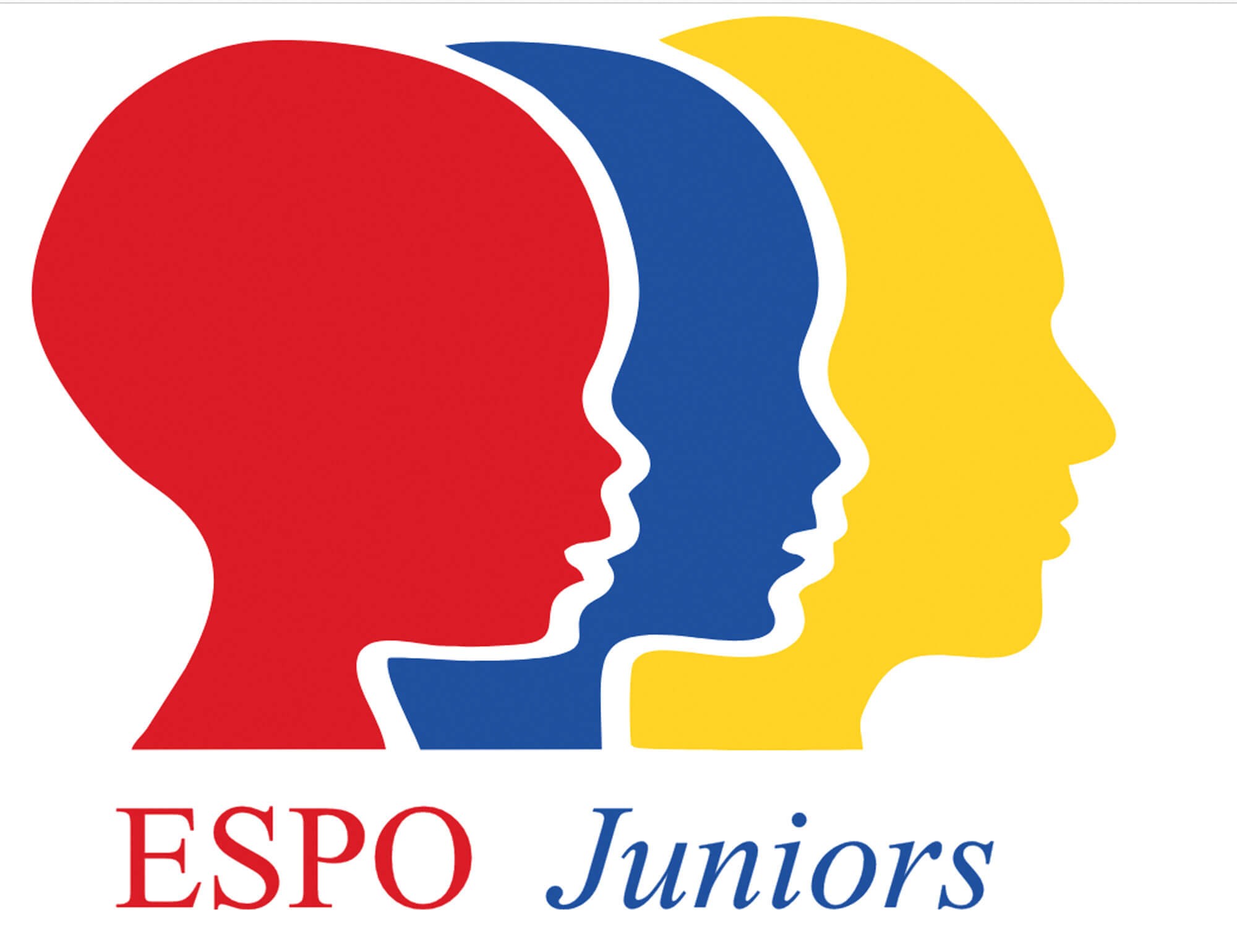
Trying to combine work and family time is one of the key issues of the younger generation. As time spent in the operating theatre decreases in comparison to previous generations, alternative ways to train are emerging through simulation or videos. Young ESPO is trying to accompany this with the educational video contest. Indeed, numerous scientific articles have shown that freely accessible online surgical videos are becoming more and more important in the training process of younger surgeons. Editing surgical videos to be short and to the point (usually five minutes or less), adding overlays to show anatomy, clearly identifying surgical steps and adding narration are all key features which improve the educational quality of a video.
New surgical simulators (the best example being a 3D-printed temporal bone for mastoidectomy) also help young surgeons learn step-by-step surgical approach, improving their skills before their first time on a patient. As the technology progresses, the simulators are becoming more realistic and less expensive to print. Still limited to hands-on courses in congresses and simulation training schools, they will likely become very common within hospital, where students as well as more experienced surgeons could train for the next day’s surgery.
"Numerous scientific articles have shown that freely accessible online surgical videos are becoming more and more important in the training process of younger surgeons"
In the operating theatre, technology is also transforming the way we work. Two promising technologies are on the rise, and are popular in congress talks: artificial intelligence (AI) and robotics. Although they can greatly improve healthcare, they also bring important ethical issues as they tend to add in interface between the patient and the surgeon, risking a ‘dehumanisation’ of patient care. They can also add considerable technicality to an otherwise straightforward surgical procedure and require the help of medical engineers. For example, robotics and AI may render automated cochlear implantation possible in the next 10 years which could be a fantastic advance for safer, faster and minimally invasive procedures in patients. The future generation of surgeons may have to reinvent their trade, becoming risk assessors and procedure managers, rather than operators with a direct contact with the patient.
These many innovations can be confusing, and Young ESPO group hope to meet you in Liverpool to lay out the path to the future of paediatric otolaryngology, but also to take part in our exciting social events to build networks throughout Europe!



